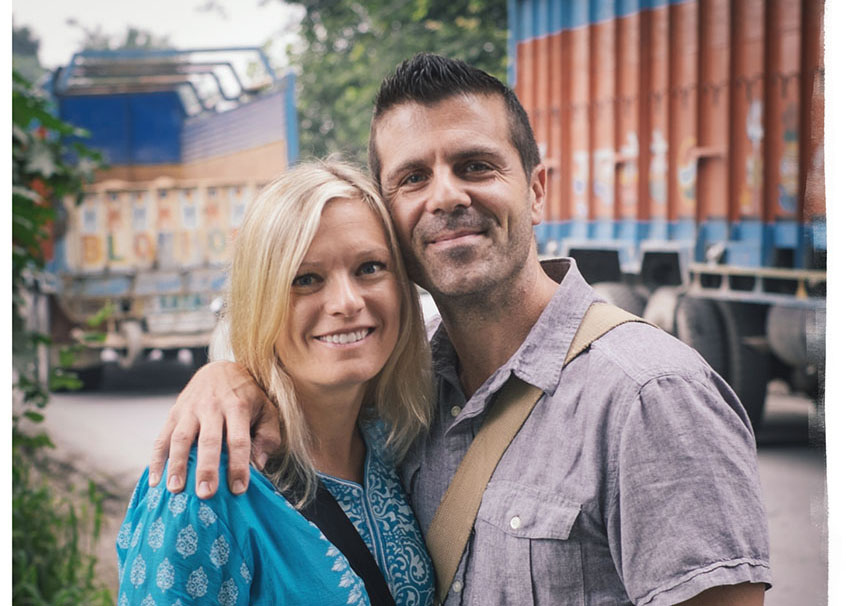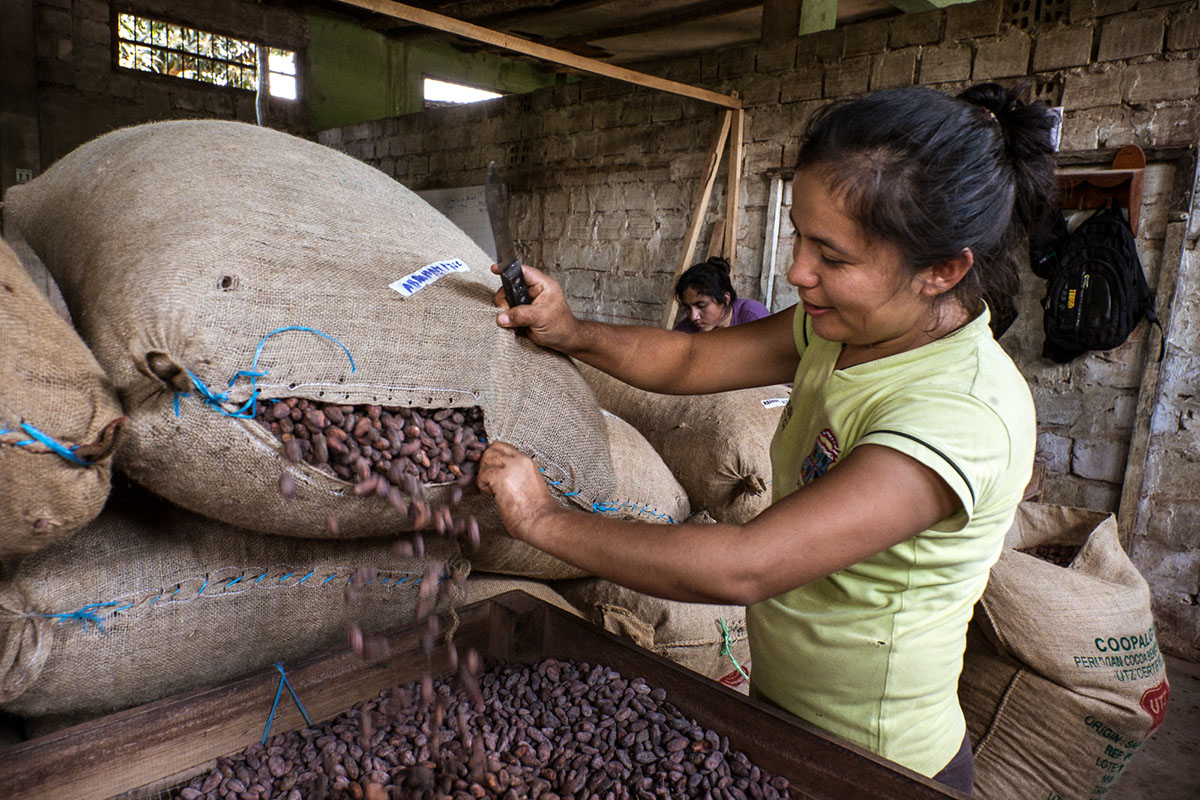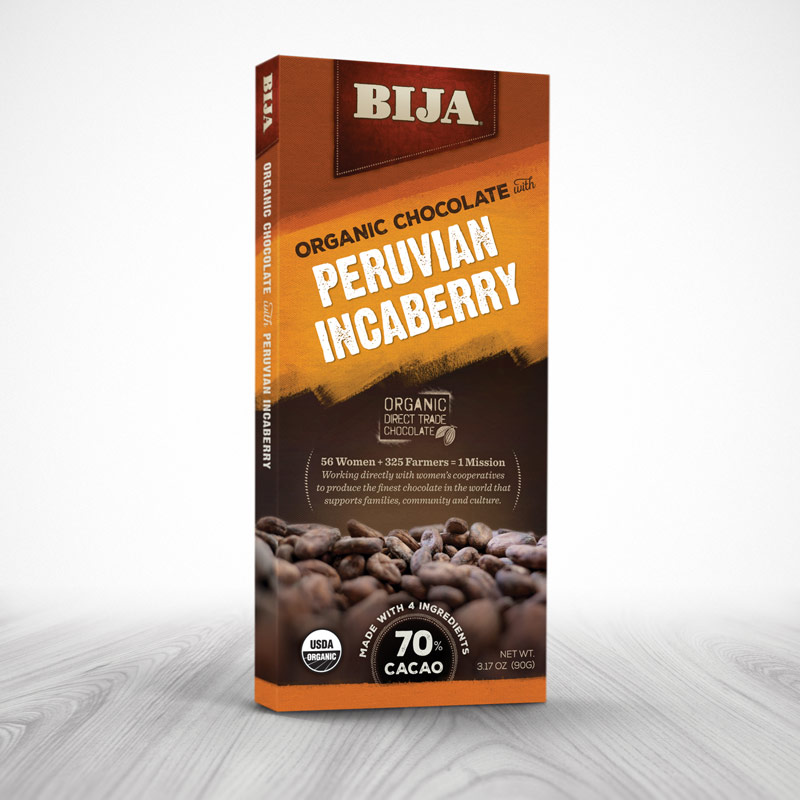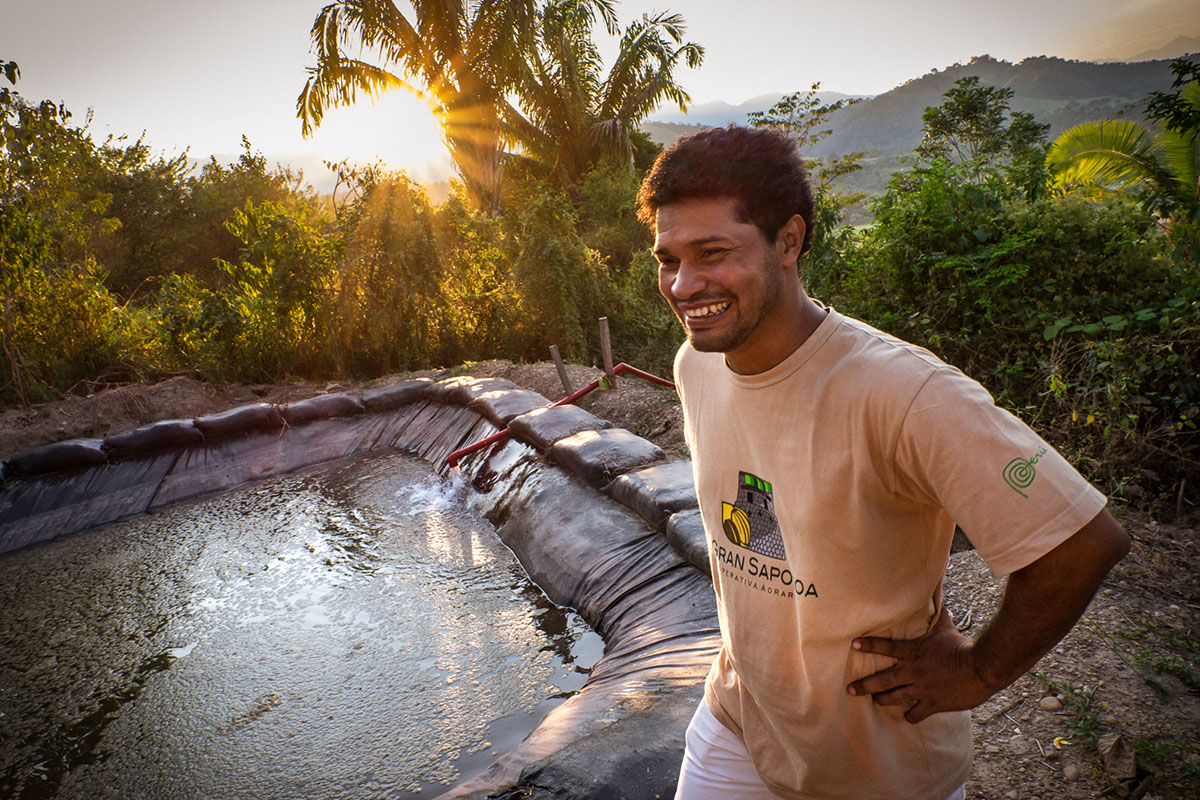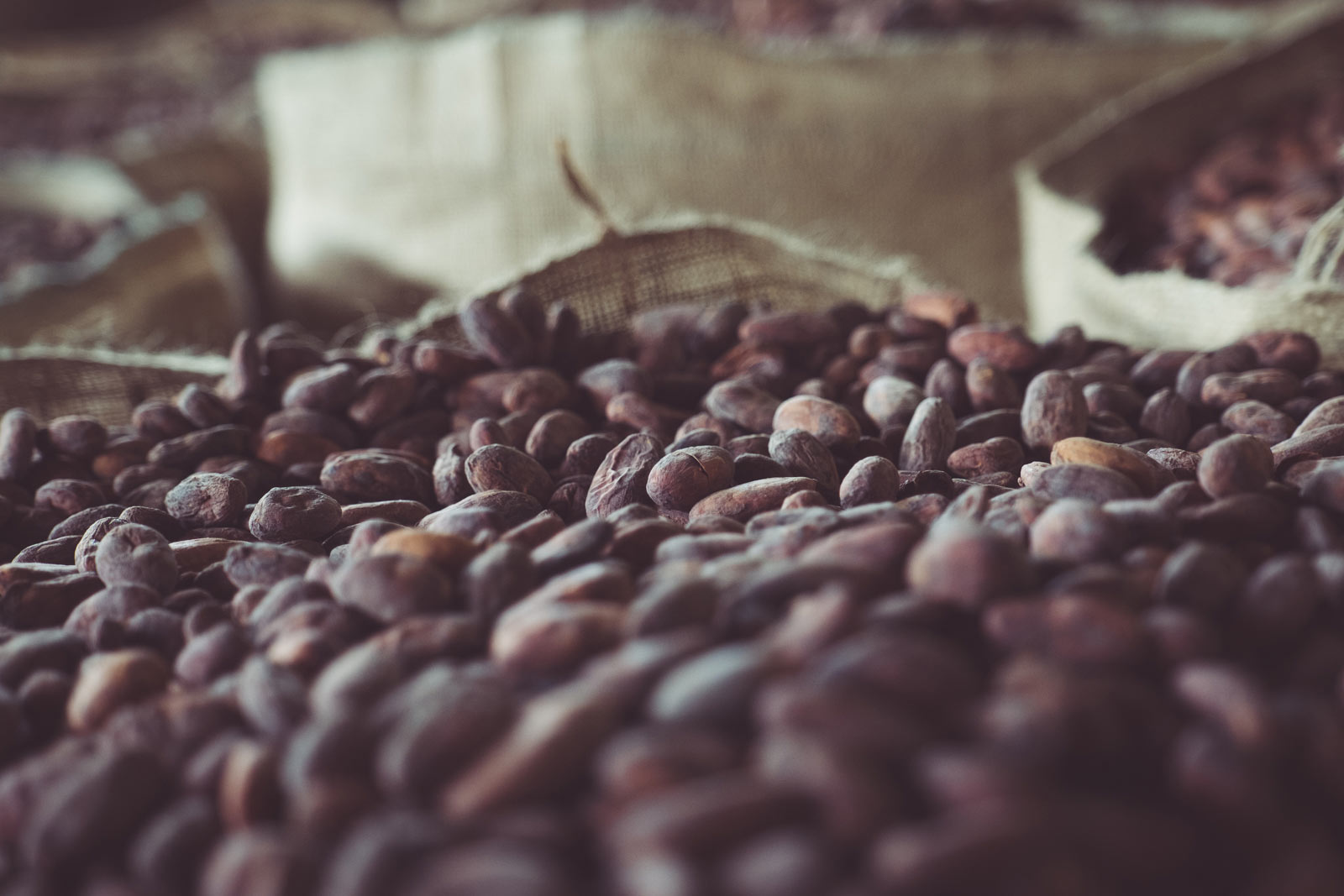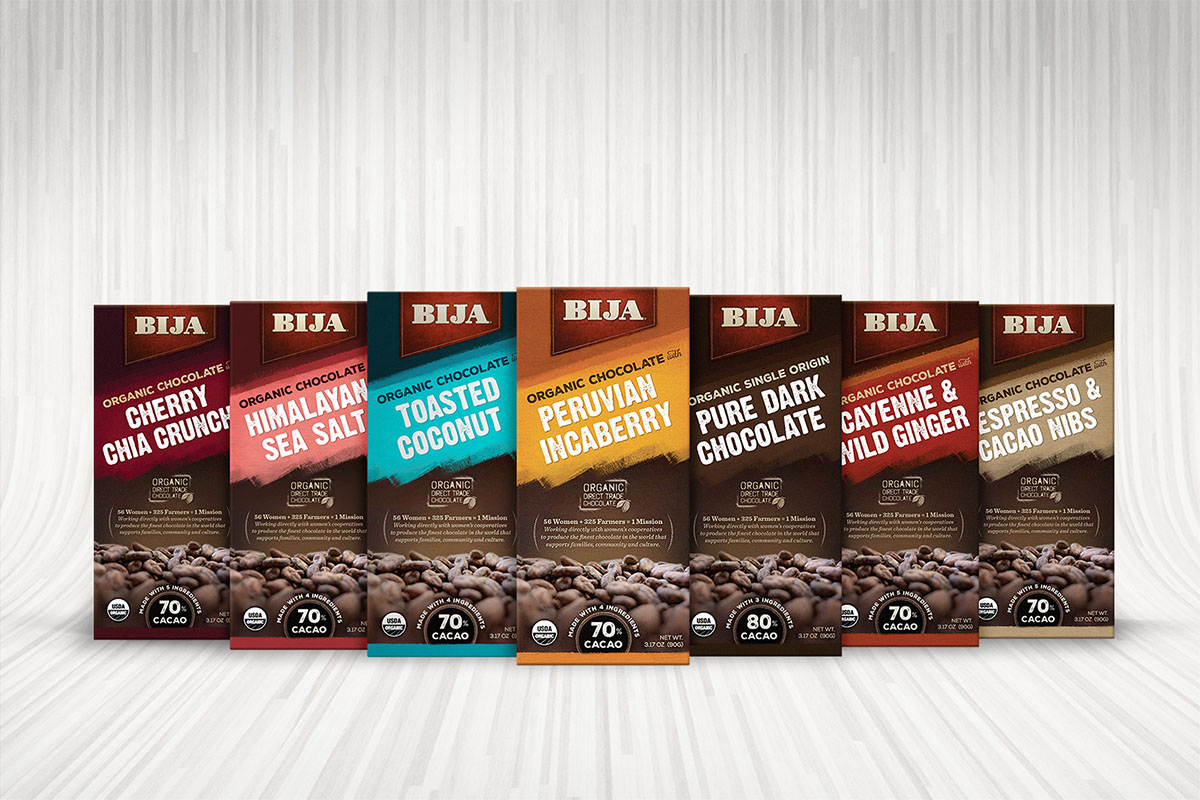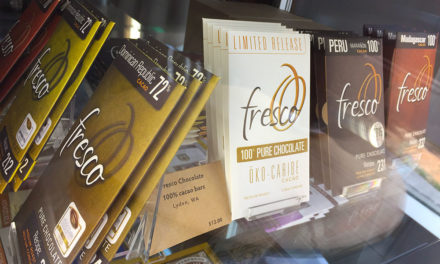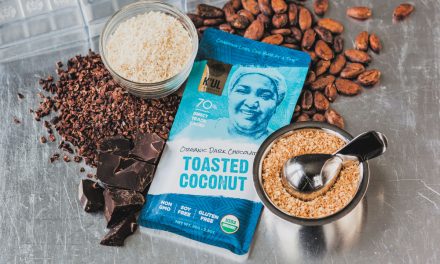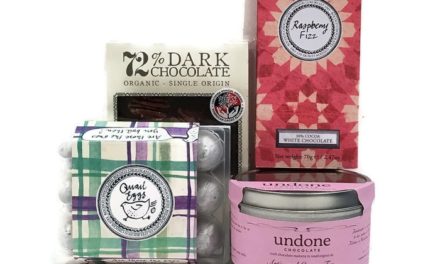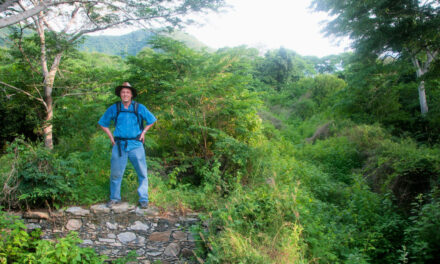by Eric Battersby
If you’re taking a stroll through Bellingham, Washington, you might stumble upon a hidden treasure – BIJA Chocolates. Yes, BIJA, the word is actually Sanskrit for “seed”. If you’re into yoga, Yogapedia says “bija is a metaphor for the starting point or origin of all creation. It is the seed from which everything originated.”
At first that may sound a bit over the top for a chocolate company, but dig a little deeper and you’ll quickly learn that BIJA earns those stripes. Paul Newman and his wife Ariana Lee-Newman (Ari if you will) run BIJA on passion; it’s much more than chocolate, and as you’re about to see, that yoga metaphor fits just perfectly.
From Honduran Jungles to Mexican Villages…
BIJA’s story actually begins in the jungles of Honduras and in remote villages of Mexico and Guatemala. It’s as much a story of this happy, world-changing couple as it is chocolate.
It began with Ari in Honduras, working on a medical mission to treat remote communities, areas without electricity or running water. During her time there, Ari saw people line up before sunrise, traveling long distances to see a physician or dentist, many for the first time. To say she was humbled would be an understatement. Ari discovered deep poverty and an urgent need for clean water and hygiene.
The BIJA story continues with Paul, who, at a very early age developed a desire to travel the world and visit unknown places, to experience the lives of people outside his own culture. During his college years, he discovered the power of documentary photography, particularly as a tool for raising awareness on social issues.
Paul found that his camera served as a passport into other cultures, granting permission to ask questions, to explore the world visually, and to step into the lives of people around the world who were otherwise off limits.
Paul then visited Guatemala and met indigenous Maya, who worked tirelessly in the highlands, cultivating crops for global food markets. These workers received minimal compensation for often difficult work, supplying coffee and cacao to the world market. Here, in a remote area of Guatemala, Paul discovered cacao for the first time, and the second piece to BIJA’s foundation clicked into place.
Much like Ari’s experience in Honduras, Paul’s time in Guatemala instilled in him a passion to create economic opportunities for communities in developing countries, particularly communities working in commodity crops. Seed planted (yes, BIJA pun intended).

A Socially Conscious Union
Paul’s work experience spans 25 years in visual communications. He worked as a creative director for companies ranging from lifestyle and action sports, to natural products and the LOHAS (Lifestyles of Health and Sustainability) market. His documentary photographer adventures now span over 20 years, and he’s covered stories from street children of Romania over the course of 15 years, to health care in rural India.
Ari studied Political Science in college, and she planned to go into international relations and human rights upon graduation. A twist of fate, however, took her to Washington, where she instead pursued an MBA (coincidentally, she worked at a chocolate factory right after graduation). Now she feels incredibly fortunate to pursue both her fight for human rights as well as her vision that business should be a true force for good.
The couple first met while working for a natural products company, and it didn’t take long to realize they’d found kindred spirits in each other, often discussing how ingredients were sourced and how a brand might serve as a voice for those in need. Once their common travel experiences entered the conversation, we can only imagine how quickly these two knew it was meant to be.
“Together we have collectively explored over 40+ countries around the world. The purpose of our travel was initially to become exposed to unfamiliar traditions and experience other cultures. The outcome was entirely different.”
Instead, Paul and Ariana were touched by the countless people who welcomed these two foreign visitors into their lives, and the couple quickly learned an all-important truth – we are all interconnected. That revelation, simple yet profound, fueled the creation of BIJA Chocolates. All the travel, the connecting on a deeper level with different people around the globe, it left a lasting mark –
“We knew that this would forever change our lives on how we conducted ourselves and how we also interacted within our professional lives. These experiences… permanently shaped what we have become and the business we have built. We think more like a social enterprise than a business.”
So it’s no exaggeration, BIJA Chocolates grew out of a passion for people. Paul and Ari wanted to take their life experiences and create a social enterprise, a company that not only provided incredibly clean, organic products but also used the impact of sourcing ingredients to equalize worker treatment. They also shared the belief that if you invest in women, they will reinvest in their families and communities.
“There is tremendous power in understanding the human side of the supply chain since human rights violations like slave labor are commonplace in many countries.”
BIJA’s program works towards helping women’s cooperatives receive organic certification, providing an economic opportunity that potentially doubles their income. BIJA funds the organic certification coordination and inspection, then pays for both the certification and the annual renewal. Then, if desired, the cooperatives can easily increase profitability by selling beans on the global market.
The hard truth is that how we cultivate our food greatly impacts the supply chain – specifically the human aspect of the supply chain. There is always a human cost to food, and at BIJA you’ll never find that cost to be an afterthought.
Beans Make the Bar
In order to bring BIJA to life, they collaborated with a master Swiss chocolatier, one with over 60 years experience. The crucial partnership taught Paul and Ari the nuances of crafting chocolate, honoring the historical chocolate making heritage of three generations.
It shines through clearly in BIJA Chocolate’s ingredients. They create 100% organic chocolate, all organic ingredients inside each and every bar. Paul and Ari firmly believe that chocolate bars should be created with minimal ingredients so customers can appreciate the chocolate itself, without distractions. Gluten-free, non-GMO, no emulsifiers, no soy, and all bars contain 5 ingredients or less – cocoa beans, cane sugar, cocoa butter, and then any inclusions. That’s the BIJA way.
“We always source 100% organic ingredients while also ensuring that our chocolates are non-GMO and vegan.”
BIJA Chocolates source their beans from the Dominican Republic and Peru, and they developed an innovating direct-trade program that gives their grower partners higher than fair-trade prices while getting them out of the system of predatory cacao brokers. It’s a system you’ve heard us mention before here at Chocolate Connoisseur – one that takes advantage of small growers and exploits them for profit.
“This is one of the most important aspects of direct-trade partnerships, you get to see with your own eyes how the crops are grown, to see how the cacao is handled, to meet the growers, and to connect with the women, so we can learn how to best support them and their communities.”
A Deeper Chocolate Philosophy
Beyond minimal ingredients, Paul and Ari also believe that food should be organic and as close to the source as possible. They also hold a resolute belief that chocolate must serve as a powerful tool for change. Not only is it one of the most consumed foods in the world, but it also completes a circle in the supply chain that greatly affects human lives.
“We love being able to create a product that can create positive change in people lives while empowering them economically.”
We often hear about human rights violations against people in countries like West Africa, but we hear little conversation on sustainability for the farmers. Lack of living wages contributes greatly to these problems, and BIJA feels that doing chocolate right can not only help educate people about their food choices, it can also bring the human story behind chocolate front and center.
“We love working with groups to understand their needs, not by projecting, but by listening, so that we as a company can attempt to bring balance to an industry where many cacao growers only make $2 a day or net 6% profit from the sale of a chocolate bar.”
Oh the Flavor of It All…
According to Paul, “Our best-selling bar right now is the BIJA Himalayan Sea Salt bar and a close second would be our Single Origin Pure Dark Chocolate.” He feels there are two reasons why these bars fly off the shelves. First, the sea salt bar contains pink Himalayan crystal sea salt, which holds a very high mineral content, providing a very unique salted bar experience.

Sure, he might be a tad biased, but Paul proudly proclaims – “Our Pure Dark truly is fantastic.”
The Road Ahead
To wrap up the interview, I ask Paul what lies ahead for BIJA. If you read the rest of this article, his answer won’t surprise you.
“We have an ambitious goal of providing organic certification by 2025 to twenty-four women’s cooperatives throughout the Equatorial belt. We also are facilitating growers to work together with the women’s cooperatives in their regions to create dynamic relationships by compressing the geographic footprint that strengthen all the stakeholders communities. In addition, we are developing community projects that will help groups we work with in areas of education and environmental ecology.”
I often tell people how wonderful it is to work in chocolate, because you meet so many amazing, positive, ambitious chocolate makers – true world changers. I’m sure you can see by now that Paul and Ariana are two such people. Expect to hear more from BIJA in a future issue of Chocolate Connoisseur, and of course if you’re in Bellingham, WA, make sure you visit their store on 2000 Kentucky Street.
If you attend any chocolate industry events, you’ll also find Paul and Ari showcasing BIJA chocolates at the UNFI Tabletop Show on May 23-24 in Long Beach, CA; otherwise, you can always find them at bijachocolates.com or on one of the social media channels below.

